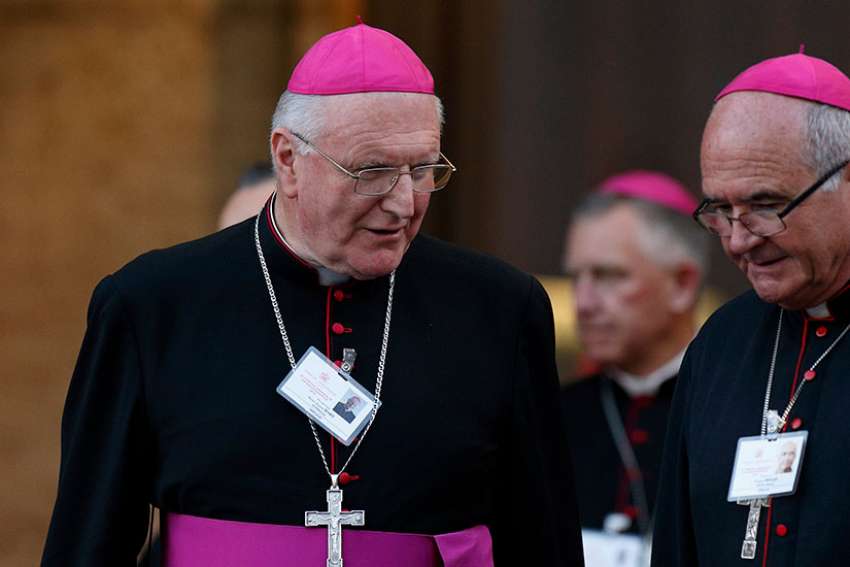“Euthanasia and assisted suicide are the opposite of care and represent the abandonment of the sick and the suffering, of older and dying persons,” the bishops said April 18.
“We ask Victorians to continue to love and care for those who are sick and suffering rather than abandoning them to euthanasia or supporting them to suicide. Our ability to care says much about the strength of our society.”
Their pastoral letter was signed by the four bishops with dioceses in Victoria state, including Archbishop Denis Hart of Melbourne.
Lawmakers in Victoria aim to allow “assisted dying,” meaning both euthanasia and assisted suicide, in limited circumstances.
In 2016 a parliamentary committee recommended that Victoria advance towards legalizing assisted suicide and euthanasia. The Government endorsed the proposal and at present there is a consultation to determine how such laws can be made “safe.”
The bishops countered: “We should be clear – there is no safe way to kill people or to help them to their own suicide.” The commandment “You Shall Not Kill” is central to both biblical and civil law, they said, encouraging the Catholic faithful and others to pray and act against the bill.
“While it is never easy to face the end of life of a loved one, we cannot support this kind of legalization however it is described,” they continued.
“Assistance in our time of dying is something that we should all want for ourselves and for others – however, this should not involve a lethal injection or offering a lethal dose.”
Instead of legalizing assisted suicide, everyone should respond to the sick and the suffering with “truth and compassion,” the bishops said, affirming that everyone has the duty “to protect, nurture and sustain life to the best of our ability.”
The bishops cited Pope Francis’ Nov. 15, 2014 speech to Italian physicians, which contrasted the false compassion of assisted suicide with “the compassion of the Gospel” that accompanies us in times of need and the compassion of the Good Samaritan who “draws near and provides concrete help.”
According to the Victorian bishops, euthanasia and assisted suicide legislation has been “continually rejected” since a short experiment in Australia’s Northern Territory state.
“Why? Because when parliamentarians take the time to debate the issue fully and to consider all the consequences they realize that to legalize euthanasia and assisted suicide would threaten the lives of vulnerable people,” the bishops said.
The bishops warned that the legislation could create a lower threshold of care and protection for the sick, the suffering and the vulnerable.
“Such a law would serve to exploit the vulnerability of those people, exposing them to further risk,” they said.
Even limited legalization would be a first step towards further expansion, the pastoral letter continued. Where assisted suicide and euthanasia have been legalized, their legality has been broadened to apply to children or psychological illness.
“In Holland, there is pressure to allow assisted suicide for people over the age of 70 who have simply become 'tired of life,'” said the bishops.
The bishop stressed the blessings the elderly provide for society. Care for them should be done in gratitude, as “part of a culture of love and care.”
The Victorian bishops thanked the government for its commitment to palliative care and encouraged more investment in this path instead of assisted suicide or euthanasia. They pointed to Catholic contributions in networks of hospice care, hospitals, aged care, and other services, encouraging further support for these.
(Story from the Catholic News Agency)


